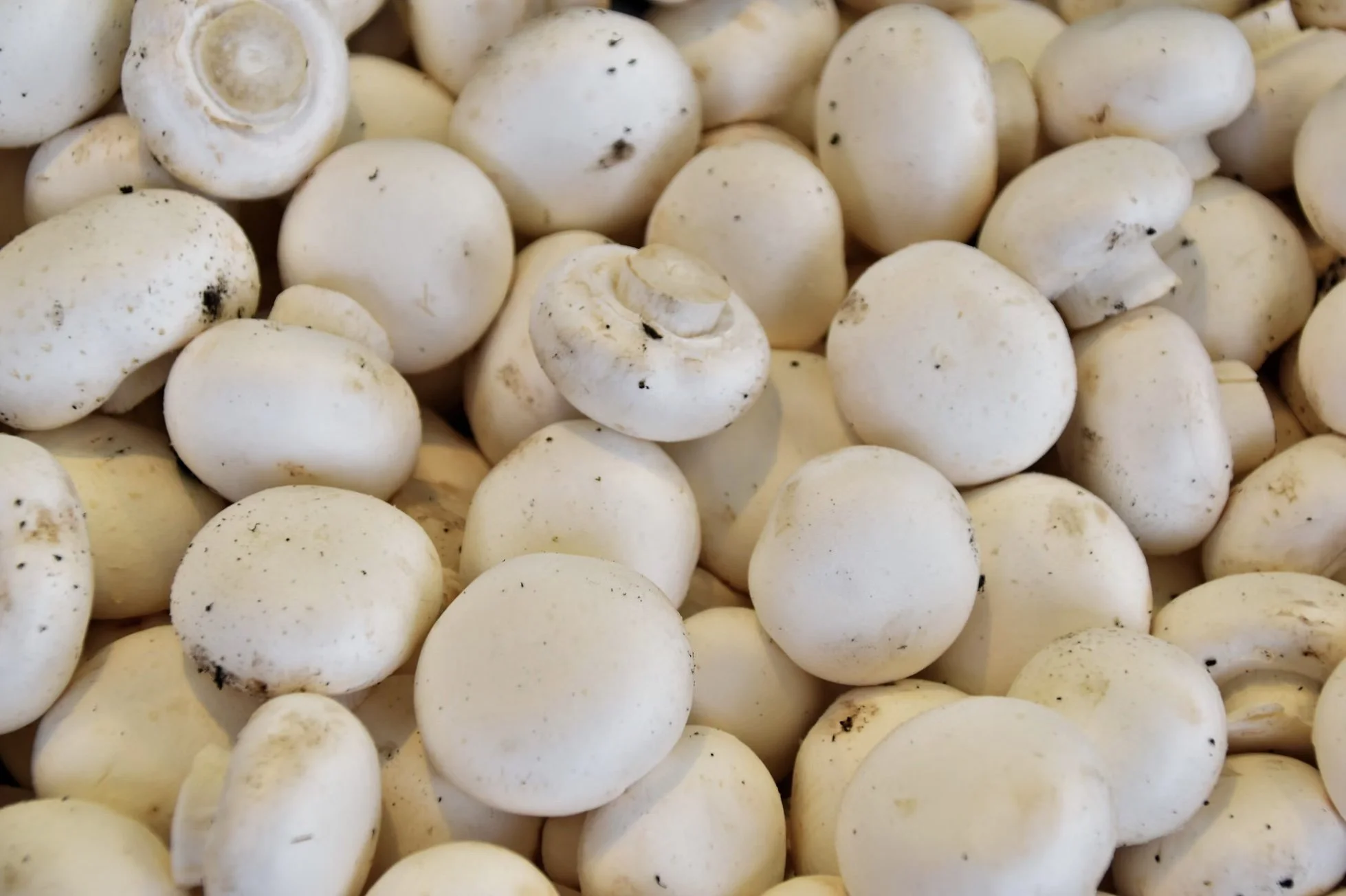
FACT FILE: MUSHROOMS
No meal is complete without the rich, earthy flavour of mushrooms . Let’s dig in and discover more about this versatile staple! Read on for information about their health benefits, key nutrients, and suggestions for cooking, usage, and storage.
-
There are many types of mushrooms grown in South Australia, including Button, Swiss Brown, Portobello, Oyster, Enoki, Shiitake, King Oyster, Shimeji, and Nameko.
Mushrooms double in size every day
Mushrooms are grown indoors, 24/7, all year round.
A portobello mushroom is simply a mature Swiss Brown, and a large flat BBQ mushroom starts out as a tiny button mushroom—they just stay on the bed a few extra days to grow!
The bigger the mushroom and the more gills it has, the stronger its flavour—thanks to extra time to mature.
Mushrooms are the only non-animal food source of vitamin D.
They’re fat-free, low in calories and salt, cholesterol-free, and gluten-free—yet packed with essential nutrients.
Leave mushrooms in the sunshine for 15 minutes, and they’ll “supercharge” with even more vitamin D.
Just one portobello mushroom contains more potassium than a banana
-
Mushrooms are rich in umami – that deep, savoury “fifth taste” similar to meat.
They are Earthy and nutty, with some varieties carrying a woody depth.
Mild and delicate when young (like button mushrooms), becoming bolder and meatier as they mature (like portobello).
Cooking methods (sautéing, roasting, grilling) intensify their flavour and bring out natural sweetness.
-
Keep mushrooms in a paper bag in the fridge – it helps absorb moisture and keeps them fresher for longer.
Avoid plastic bags or sealed containers – mushrooms need to breathe, otherwise they’ll sweat and spoil faster.
Store them in the main fridge compartment, not the crisper, to reduce humidity exposure.
Don’t wash mushrooms before storing – only clean them right before cooking to prevent sogginess.
Use within 3–5 days of purchase for the best flavour and texture.
If you buy pre-packed mushrooms, remove the plastic wrap and transfer them to a paper bag or wrap loosely in paper towels.
-
Rich in umami – adds flavour without the need for extra salt.
Nutrient-dense – low in calories, fat-free, cholesterol-free, and gluten-free, while packed with vitamins and minerals.
Natural source of vitamin D – the only non-animal food source, especially when exposed to sunlight.
contains B vitamins (riboflavin, niacin, pantothenic acid) which support energy, brain health, and a healthy nervous system.
Good source of antioxidants like selenium and ergothioneine, which protect cells and support immune health.
High in potassium, which helps regulate blood pressure and supports heart health (one portobello has more potassium than a banana!).
Support gut health thanks to their prebiotic fibre, which nourishes healthy gut bacteria.
-
Ergothioneine – a unique antioxidant that protects cells from oxidative stress.
Beta-glucans – immune-boosting soluble fibres that support heart and gut health.
Selenium – a trace mineral with antioxidant properties that helps protect cells and supports immunity.
Vitamin D (D2) – naturally present, and levels increase when exposed to sunlight.
Copper – essential for energy production, iron metabolism, and maintaining healthy nerves.
Phenolic compounds – plant-based antioxidants that help fight inflammation.
Polysaccharides – support immune function and may contribute to overall wellness.
